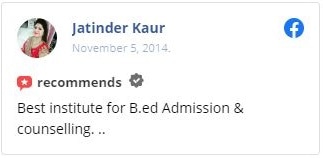Bachelor of Science (B.Sc.) in Nursing Course: Admission Process, Eligibility Criteria, Syllabus, Scope, Fees, Duration, and Career Opportunities.
B.Sc. in Nursing Course Overview
The Bachelor of Science in Nursing (B.Sc. Nursing) is a comprehensive undergraduate program designed to equip students with the knowledge and skills necessary for a successful career in the healthcare sector.
Course Structure
Duration:
The B.Sc. in Nursing program typically spans four years, consisting of both theoretical and practical components that prepare students for the demands of the profession.
Core Subjects:
The curriculum includes essential subjects, such as:
- Anatomy and Physiology: Understanding the human body’s structure and functions.
- Microbiology: Studying microorganisms and their impact on health.
- Pharmacology: Covering the basics of drug therapy and medication administration.
- Nursing Foundations: Learning the principles and practices of nursing, including patient care.
Clinical Practice:
Moreover, extensive hands-on training is provided in clinical settings, allowing students to apply their theoretical knowledge in real-world scenarios. This practical experience includes rotations in various departments, such as pediatrics, obstetrics, surgery, and mental health.
Research and Health Education:
In addition, students learn about nursing research methodologies and the importance of health education in promoting wellness and disease prevention, which is crucial for effective nursing practice.
Skills Developed
Throughout the program, students develop a range of essential skills, including:
- Clinical Skills: Proficiency in patient assessment, diagnosis, and care planning.
- Communication: Effective communication with patients, families, and healthcare teams.
- Critical Thinking: The ability to analyze situations and make informed decisions in patient care.
- Leadership and Management: Skills for managing nursing teams and healthcare environments.
Career Opportunities
Graduates of the B.Sc. in Nursing program can pursue various career paths, including:
- Registered Nurse (RN): Providing direct patient care in hospitals, clinics, and community health settings.
- Nurse Educator: Teaching and mentoring nursing students.
- Clinical Nurse Specialist: Specializing in specific areas of patient care.
Eligibility Requirements for Bachelor of Science in Nursing (B.Sc. Nursing) Program
To apply for the Bachelor of Science in Nursing (B.Sc. Nursing) program, candidates must meet specific eligibility requirements. Here are the typical criteria:
Educational Qualification:
Candidates must have completed 10+2 or equivalent education with a focus on science subjects. This generally includes:- Physics
- Chemistry
- Biology
Additionally, a minimum percentage (often around 50% to 55%) in these subjects is usually required, although this may vary by institution.
Age Limit:
Applicants should typically be between 17 and 35 years of age. However, it’s important to note that some universities may have specific age requirements, so checking individual guidelines is crucial.Entrance Examination:
Many institutions require candidates to pass an entrance exam for admission to the B.Sc. Nursing program. This exam may assess knowledge in relevant science subjects as well as general aptitude, making preparation essential.Health Requirements:
Candidates may need to provide a medical fitness certificate, ensuring they are physically fit for the demands of the nursing profession.Character Certificate:
Furthermore, a character certificate from the last attended institution may be required to verify the applicant’s conduct and behavior, emphasizing the importance of good character in the nursing field.
Conclusion
In conclusion, meeting these eligibility criteria is essential for aspiring nursing students. Candidates should verify the specific requirements of the institution they wish to apply to, as criteria may vary between universities. Additionally, preparing adequately for entrance exams and gathering necessary documentation will help ensure a smooth admission process into the B.Sc. Nursing program.
B.Sc. in Nursing Course Highlights
Aspect | Details |
Course Duration | 4 years |
Eligibility | 10+2 with Science (Physics, Chemistry, Biology) |
Core Subjects | Anatomy and Physiology, Microbiology, Pharmacology, Nursing Foundations |
Clinical Training | Hands-on experience in hospitals and clinics |
Skills Developed | Clinical skills, Communication, Critical thinking, Leadership |
Career Opportunities | Registered Nurse, Nurse Educator, Clinical Nurse Specialist, Public Health Nurse, Nurse Administrator |
Certification | B.Sc. in Nursing upon completion |
Key Focus Areas | Patient care, Health education, Research |
Admission Process for Bachelor of Science in Nursing (B.Sc. Nursing) Course in 2025
The admission process for the Bachelor of Science in Nursing (B.Sc. Nursing) course in 2025 typically involves several key steps. While specific procedures may vary by institution, the following outline provides a general framework:
Research and Selection
- Identify Institutions: Start by researching various colleges and universities offering the B.Sc. Nursing course. Consider factors such as course curriculum, faculty, facilities, and placement opportunities to make an informed choice.
- Identify Institutions: Start by researching various colleges and universities offering the B.Sc. Nursing course. Consider factors such as course curriculum, faculty, facilities, and placement opportunities to make an informed choice.
Application Form
- Complete the Form: Fill out the application form with accurate personal and academic information, ensuring that all details are correct to avoid any issues.
- Complete the Form: Fill out the application form with accurate personal and academic information, ensuring that all details are correct to avoid any issues.
Document Submission
- Required Documents: Prepare and submit the following documents:
- 10+2 mark sheets and certificates
- Identity proof (such as an Aadhar card or passport)
- Passport-sized photographs
- Medical fitness certificate (if required)
- Required Documents: Prepare and submit the following documents:
Entrance Examination (if applicable)
- Entrance Exam: Be aware that some institutions may conduct entrance examinations to assess candidates’ knowledge in relevant subjects, such as science and general health.
- Prepare: To succeed, prepare for the exam using relevant study materials and practice papers.
Merit List
- Result Announcement: After evaluating entrance exam scores and conducting interviews (if applicable), institutions typically publish a merit list of selected candidates. This list may be posted on the institution’s website or communicated directly to candidates.
- Result Announcement: After evaluating entrance exam scores and conducting interviews (if applicable), institutions typically publish a merit list of selected candidates. This list may be posted on the institution’s website or communicated directly to candidates.
Document Verification
- Verification Process: Candidates who are selected must undergo a document verification process, during which original documents are checked against submitted copies to confirm authenticity.
- Verification Process: Candidates who are selected must undergo a document verification process, during which original documents are checked against submitted copies to confirm authenticity.
Fee Payment
- Admission Fee: Once document verification is complete, candidates will need to pay the admission fee to secure their seat in the program. Details regarding payment methods and deadlines will be provided by the institution.
B.Sc. Nursing Curriculum
The B.Sc. Nursing program consists of a structured curriculum that spans four years, covering essential subjects to equip students with the necessary knowledge and skills for their nursing careers.
Year 1
- Anatomy and Physiology: Understanding the structure and function of the human body.
- Microbiology: Studying microorganisms and their impact on health and disease.
- Nutrition: Learning about the role of nutrition in health and disease management.
- Psychology: Exploring mental processes and behaviors to better understand patient care.
- Community Health Nursing: Focusing on health promotion and disease prevention in community settings.
Year 2
- Medical-Surgical Nursing: Covering nursing care for patients with medical and surgical conditions.
- Pharmacology: Understanding the principles of medication administration and effects.
- Child Health Nursing: Focusing on the unique health needs of infants and children.
- Maternal and Child Health Nursing: Emphasizing care for mothers and their children during pregnancy and postpartum.
- Mental Health Nursing: Addressing mental health issues and promoting psychological well-being.
Year 3
- Advanced Nursing Practice: Enhancing clinical skills and knowledge for complex patient care.
- Nursing Research: Understanding research methodologies and their application in nursing practice.
- Leadership and Management in Nursing: Developing skills for effective leadership and management in healthcare settings.
- Ethics and Professionalism in Nursing: Examining ethical issues and professional standards in nursing.
- Clinical Practice: Engaging in hands-on experience to apply theoretical knowledge in real-world settings.
Year 4
- Public Health Nursing: Focusing on health promotion and disease prevention at the population level.
- Gerontological Nursing: Addressing the health needs of the elderly population.
- Health Assessment: Learning techniques for comprehensive health assessments.
- Critical Care Nursing: Preparing for nursing care in high-acuity settings.
- Practical Training and Internship: Gaining valuable experience through clinical placements in various healthcare environments.
B.Sc. in Nursing Course: Fees and Duration
Bachelor of Science in Nursing (B.Sc. Nursing)
The Bachelor of Science in Nursing (B.Sc. Nursing) program is a comprehensive course designed to prepare students for a career in nursing.
Duration
Course Duration:
The B.Sc. Nursing course generally lasts for four years. This duration includes both theoretical coursework and practical training in clinical settings, ensuring a well-rounded education.
Fees
Tuition Fees:
For government institutions, fees usually range from ₹20,000 to ₹80,000 per year. On the other hand, private institutions can have fees that vary widely, typically ranging from ₹50,000 to ₹2,00,000 per year, depending on the reputation and facilities of the institution.
Additional Costs
In addition to tuition fees, there are several other costs to consider:
- Books and Study Materials: Approximately ₹5,000 to ₹15,000 for the duration of the course.
- Uniforms and Supplies: Costs for uniforms and other necessary supplies may range from ₹3,000 to ₹10,000.
- Examination Fees: Furthermore, some institutions may charge additional fees for examinations, which can vary.
B.Sc. in Nursing Course: Scope
Bachelor of Science in Nursing (B.Sc. Nursing)
The Bachelor of Science in Nursing (B.Sc. Nursing) program offers extensive training and knowledge, preparing graduates for a vital role in the healthcare sector. With the growing demand for healthcare professionals, particularly nurses, the scope for B.Sc. Nursing graduates is broad and promising.
Scope of the Nursing Profession
Growing Demand:
Firstly, the healthcare sector is expanding rapidly, leading to an increasing need for qualified nursing professionals. This demand is especially pronounced in urban areas, rural health services, and during public health emergencies.
Comprehensive Patient Care:
Moreover, B.Sc. Nursing graduates are trained to provide holistic patient care, addressing physical, emotional, and social needs. This comprehensive approach is vital for improving patient outcomes.
Diverse Work Environments:
Furthermore, B.Sc. Nursing graduates have the opportunity to work in various settings, including:
- Hospitals (public and private)
- Community health centers
- Clinics and outpatient facilities
- Nursing homes and rehabilitation centers
- Educational institutions (as nursing educators)
- Research organizations and NGOs
Opportunities for Specialization:
Additionally, there are numerous avenues for specialization within the field, such as:
- Geriatric Nursing
- Critical Care Nursing
- Midwifery
- Community Health Nursing
- Mental Health Nursing
B.Sc. in Nursing Course: Career Opportunities
Graduates of the B.Sc. in Nursing program can pursue various career paths, including:
- Registered Nurse (RN): These professionals provide direct patient care in hospitals, clinics, and community health settings.
- Nurse Educator: This role involves teaching and mentoring nursing students, shaping the future of the profession.
- Clinical Nurse Specialist: Specializing in specific areas of patient care, these nurses offer expert advice and management.
- Public Health Nurse: Focused on community health and disease prevention, they play a vital role in promoting wellness.
- Nurse Administrator: This position entails managing nursing teams and healthcare facilities, ensuring effective operations.






























